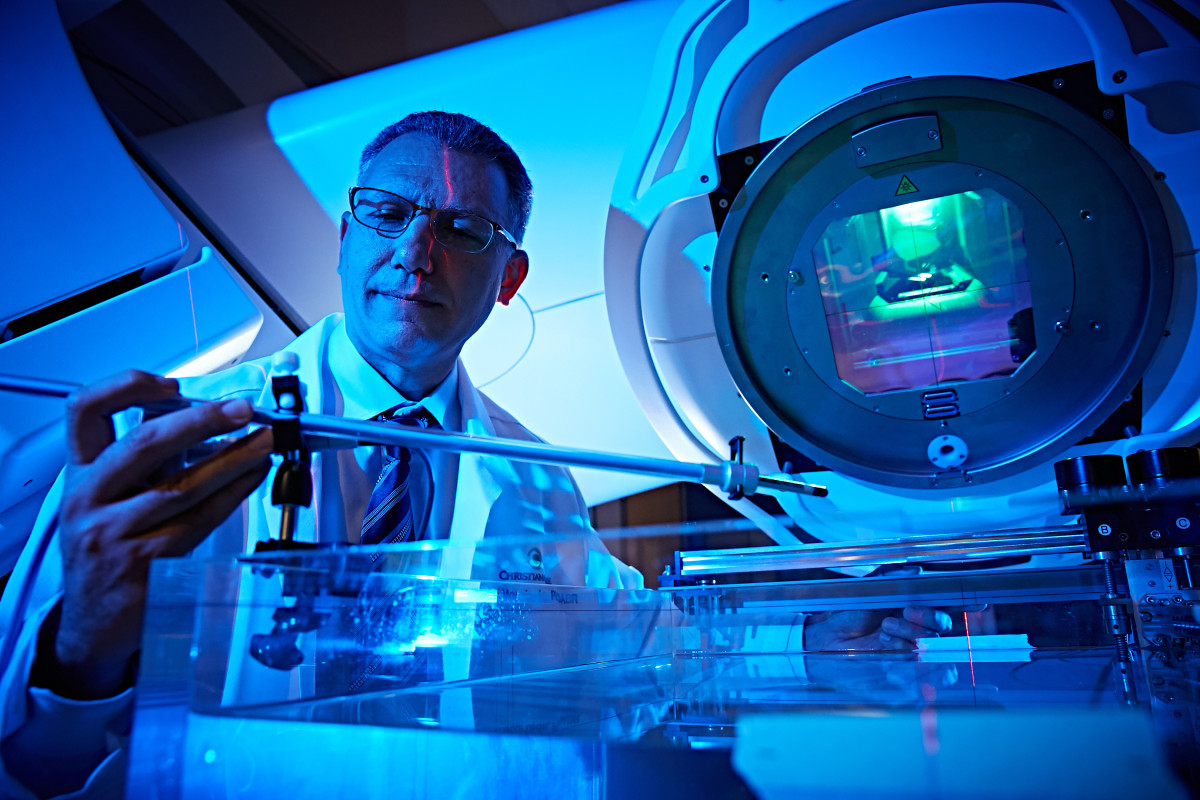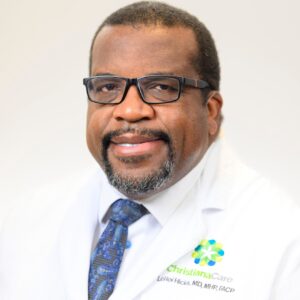Christiana Care is turning the tide on lung cancer, the number one cancer killer of men and women in Delaware and the nation.
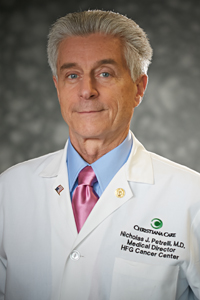
“Cancer rates are declining, thanks in part to our medical interventions and statewide education and screening partnerships,” said Nicholas J. Petrelli, M.D., Bank of America endowed medical director of the Helen F. Graham Cancer Center & Research Institute. “But lung cancer remains an enormous strain on Delaware’s cancer burden.”
The effort includes more screening for those at high-risk for lung cancer, with help to quit smoking. People diagnosed with lung cancer are receiving advanced treatment options and hope from promising new research.
As one of the original National Cancer Institute (NCI) selected Community Cancer Centers and now part of NCI’s Community Oncology Research Program (NCORP), the Graham Cancer Center has a leadership role in driving down lung cancer incidence and mortality rates in Delaware.
“We are doing all the things a comprehensive cancer center should be doing,” Dr. Petrelli said. “We are nationally recognized for our multifaceted, multidisciplinary approach to improving lung cancer survival as well emphasizing prevention strategies like counseling and help to quit smoking for those at high-risk.”
Lung cancer kills more people than colon, breast and prostate cancer combined
The latest figures from the Delaware Division of Public Health (2007-2011) show that lung cancer claimed 14.5 percent of all newly diagnosed cancer cases and 29.9 percent of cancer deaths in the state. More than half of the cases are diagnosed at a late stage, where five-year survival is less than 1 percent.
The outlook is much better for people diagnosed early. That is why Christiana Care offers lung health screenings for individuals with a history of smoking considered to be at high risk for lung cancer.
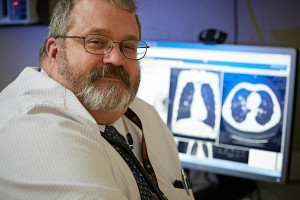
The Graham Cancer Center and the Christiana Care Medical Group have partnered with the Delaware Division of Public Health’s Screening for Life program to offer all Delawareans who qualify the opportunity for low-dose CT scan lung screening according to national guidelines. Essential to the program are the counseling and help to quit smoking that the Graham Cancer Center offers. So far, more than 600 individuals have participated in the program.
“By and large, the majority of the CT scans performed are negative for lung cancer, “said Chief of Thoracic Surgery Charles R. Mulligan Jr., M.D. “This presents us with a teachable moment about the risks of smoking and the benefits of our programs to help people quit.” Equally exciting is that most of the lung cancers identified are early stage, when they are most treatable.
The Christiana Care Lung Health and Screening program includes a shared-decision-making visit with a nurse practitioner and the guidance of a nurse navigator who coordinates low-dose CT scan appointments, follow-up with the primary care provider and referrals, when necessary, to the pulmonary and thoracic specialists at the Graham Cancer Center’s Multidisciplinary Thoracic, Esophageal and Lung Cancer Center for further evaluation and treatment.
Next generation of medicines and technologies
Many lung cancers require a multidisciplinary approach that combines surgery, medical oncology and radiation oncology. The Graham Cancer Center model of multidisciplinary cancer care has become the standard for leading institutions around the country and abroad.
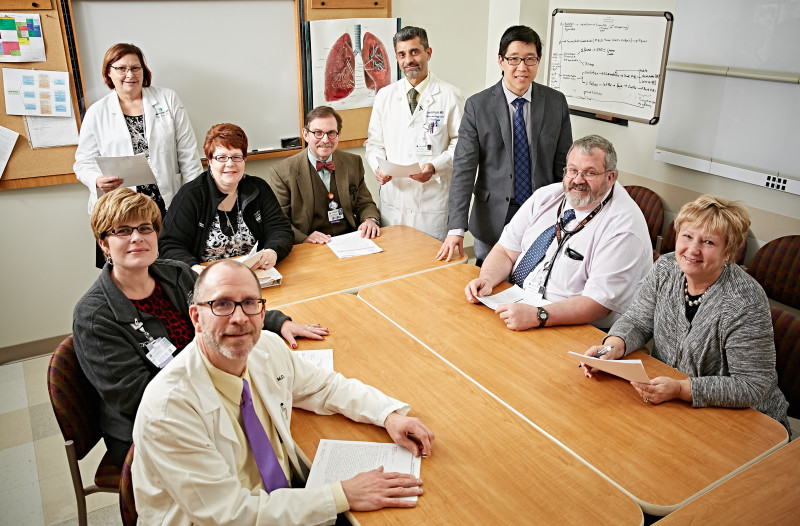
Treatment options include advanced, minimally invasive procedures to detect and treat lung cancers. The Graham Cancer Center is home to one of the largest high-dose brachytherapy (internal radiation) programs for inoperable lung cancer, as well as Delaware’s first and only CyberKnife robotic radiosurgery system to target hard to reach lung tumors with pinpoint accuracy.
The team specializes in standard chemotherapy regimens as well as experimental therapies, for all stages of disease, including tumors that are refractory to all conventional treatments. These include vaccines, immunotherapy and the latest targeted molecular therapy.
New clinical pathways, like the one for Stage 2 non-small-cell lung cancer, sharpen the focus on national guidelines and best practices to further reduce unnecessary variations in care and optimize patient outcomes.
Although clinical pathways are not new to cancer care, according to Dr. Petrelli, they foster continuous improvement in the process of care.
“The non-small cell lung cancer pathway gives us an opportunity to take an even more discerning look at the treatment of patients diagnosed with this most commonly diagnosed form of lung cancer,” he said.
The pathway opens a roadmap for patients to be partners in their care and for primary care doctors to communicate with specialists. Following the pathway can lead to decreasing the number of imaging procedures from diagnosis through survivorship, reducing the cost of care by standardizing chemotherapy protocols, increasing screening to find earlier-stage cancers and help for people to quit smoking.
World’s first commercial blood test for lung cancer
The Graham Cancer Center offers access to the most promising clinical trials of new treatments that impact not only quality of life but improve survival rates. A growing Translational Cancer Research Program pairs scientists with clinicians to move discoveries closer to everyday medicine.
One example is the Graham Cancer Center’s unprecedented partnership with the Wistar Institute in Philadelphia that most recently took a giant leap closer to developing the world’s first commercial blood test for lung cancer.
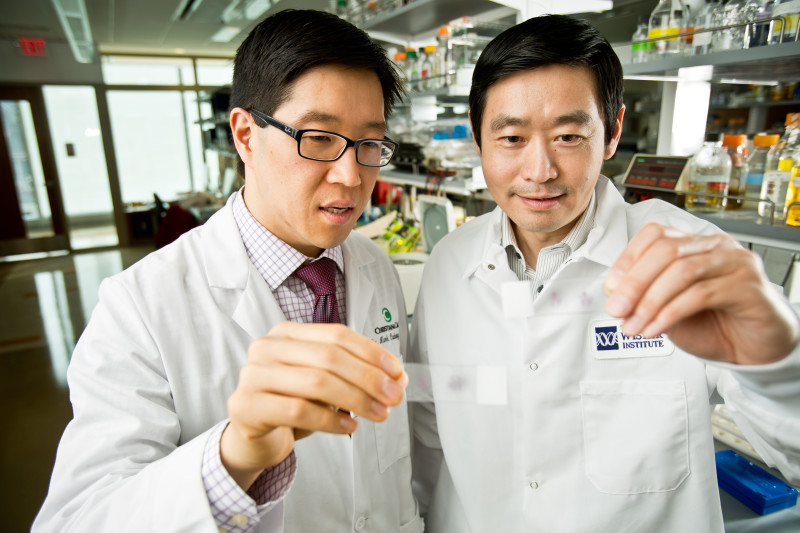
Graham Cancer Center clinicians collaborated with Louise C. Showe, Ph.D., a professor in the Molecular & Cellular Oncogenesis Program at Wistar, whose team identified a panel of biomarkers circulating in the blood that could detect lung cancer in high-risk patients. The hope is that this test can confirm a patient’s diagnosis and address the high false-positive rate obtained from low-dose CT scans, currently the gold standard for early diagnosis of lung cancer .
This test could not have been developed at The Wistar Institute without access to essential patient blood and tissue samples provided by the Graham Cancer Center’s Tissue Procurement Center. Stemming from this collaboration came a recent announcement by OncoCyte, a developer of liquid biopsy products for early cancer detection, about its global licensing agreement for exclusive rights to commercial development of the test set for later this year.
“Our large patient population and the commitment of our clinicians to research are key contributors to the successful partnership with Wistar that is moving basic science more rapidly toward discovery of its clinical potential,” said Gregory Masters, M.D., one of the investigators for this project at the Graham Cancer Center and principal investigator of the NCORP grant.
In another project, Qihong Huang, M.D., Ph.D., and his team at Wistar’s Tumor Microenvironment and Metastasis Program, are working on a diagnostic test that looks for genetic markers of non-small-cell lung cancer. To validate his early findings in a larger test group, Dr. Huang is collaborating with thoracic surgeon Brain Nam, M.D., and the Thoracic/Esophageal MDC team at the Graham Cancer Center to collect and analyze blood samples donated from lung cancer patients.
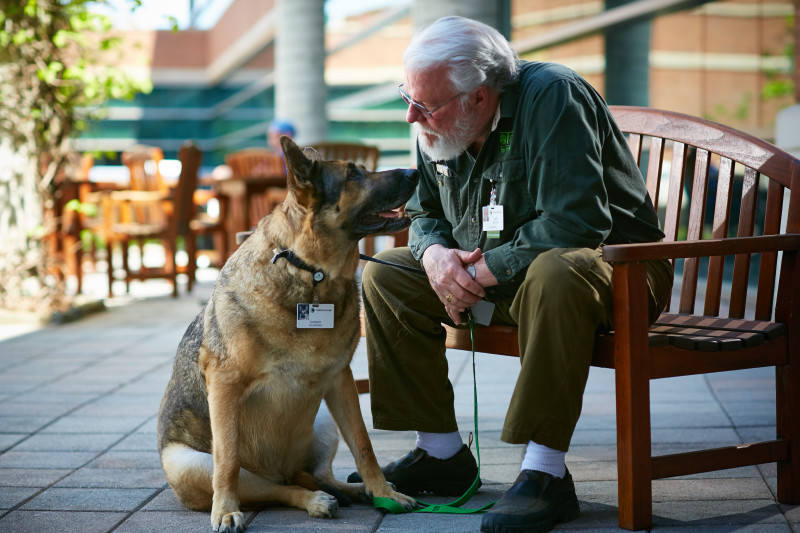
Engaging the community
“Christiana Care is doing at the community level what we all should be doing at the national level,” said Albert A. Rizzo, M.D., FACP, FACCP, chief of Christiana Care’s Pulmonary and Critical Care Medicine Section. Dr. Rizzo is senior medical adviser to the American Lung Association and a longtime advocate for lung health on the national stage. “We must continue to raise awareness about the dangers of smoking as the number-one cause of lung cancer and to advocate for more prevention and research dollars if we are going to turn the tide on lung cancer.”
Community Health Outreach and Education Manager Nora Katurakes, MSN, RN, OCN, is leveraging the Graham Cancer Center’s outreach program to help providers advocate for their patients. For example, her team hosted a recent one-day workshop, “About Lung Cancer — What You Need to Know,” to update nursing professionals about the importance of teaching prevention and how to access available resources for their patients from prevention to survivorship.
“An important part of our mission is to emphasize to our health care providers how they can make an impact in their own practices to reduce the burden of lung cancer in our state,” Katurakes said.
